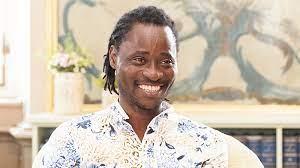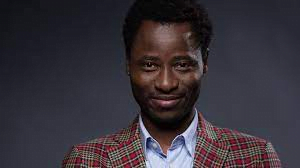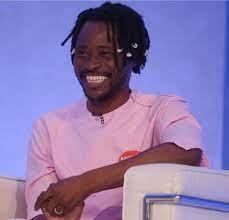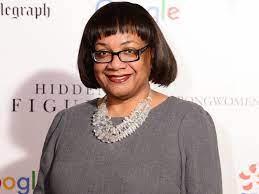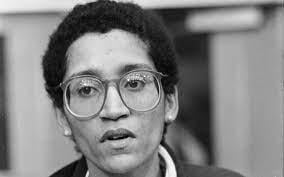Ademola Iyandade Ojo Kazeem Alimi
Bisi Alimi went from being an extreme anti-gay campaigner into becoming the first Nigerian to come out on the country’s national TV. He also became a renowned AIDS activist. Now based in London, he is the founder of the Bisi Alimi Foundation, which advocates for LGBT rights in Nigeria. He also consults with the World Bank, writes for outlets such as The Guardian and Project Syndicate, and has appeared on BBC World Service and media shows including Tell Me More, with Michele Martins and Christiana Amanpour, and. He is also the co-founder of Rainbow Intersection, a dialogue about race, culture and sexuality, and the biggest LGBT charity in Nigeria.
1975
Nigeria
Nigerian
1993- Graduated from Eko Boys High School
2002- Joined Alliance Rights Nigeria (ARN), providing HIV/AIDS and sexual health services and support
2005- Set up The Independent Project Nigeria (TIP), now known as The Initial Equal Rights Nigeria (TIER)
2007- Sought asylum in the United Kingdom
2011- Went to Birkbeck College, University of London, and earned a Master’s degree in Global Governance and Public Policy
2011- Joined with other community leaders to found Kaleidoscope Diversity Trust
2012- Invited to the White House along with global HIV advocates and activists to meet President Barack Obama.
2014- Did the TEDx Berlin talk There Should Never Be Another Ibrahim
2014- Granted British citizenship in December
2014 – The Aspen Institute named him a Fellow
2016- Did the Ted Talk How I Became An Angelic Troublemaker
2017- Delivered his I Am Bisi Alimi and I Am Not a Victim closing speech at a Daily Beast event
2016- Named one of the Most Inspiring British LGBT People by Buzzfeed
2017- Ranked number 68 on the World Pride Power List
2017- Honoured by The Independent newspaper in the UK as one of the nine LGBT people that defined the year
2017- Went on tour of the UK with his one-man stage piece Africa’s Future Has No Space for Stupid Black Man
2019- Offered the John Stopford Scholarship to study for a Masters in Executive Coaching at Meyler Campbell Coaching School
Born Alimi Ademola Iyandade Ojo Kazeem in the Mushin district of Lagos, Nigeria, Alimi was the third in a family of five children from his mother, Idiatu Alake Alimi, a university clerk, and sixth from a family of ten children from his police officer father, Rasaki Ipadeola Balogun Alimi. He later changed his name to Adebisi Alimi.
Alimi attended Eko Boys High School in Lagos, and graduated in 1993. He led his school cultural dances both at primary and secondary school to many awards and honours. Alimi was a member of his secondary school literary and debating society, and a Social Prefect in his senior year. Following high school, he enrolled at University of Lagos, Nigeria, and obtained his Bachelor of Arts degree in Theatre Arts.
Alimi’s LGBTQ+ activism began in late 1990s Nigeria after many of his friends began dying from HIV/AIDS. He spent two years doing community mobilisation work and condom distribution among gay men, as well as men who have sex with other men (MSM) in Nigeria. In 2002 he joined Alliance Rights Nigeria (ARN), providing HIV/AIDS and sexual health services and support.
As ARN Programme Director, Alimi was at the heart of developing Nigerian MSM HIV prevention framework. He was trained by the International AIDS Alliance as an HIV project designer and community mobilizer, and a provider of HIV care, support, and treatment. In 2014 Alimi himself was diagnosed with HIV. He became the first Nigerian to openly declare his sexuality on national television, and it was a turning point in the discussion on sex and sexuality in Nigeria. Alimi also became the first openly gay man in Nigeria to address the National AIDS conference in the capital city of Abuja.
In 2005, Alimi left Alliance Rights Nigeria to set up The Independent Project Nigeria (TIP), now known as The Initial Equal Rights Nigeria (TIER). While the Executive Director of TIER, he was able to secure £6m in funding from USAID through Heartlands Alliance USA for the first nationwide MSM HIV prevention project in Nigeria.
Alimi sought asylum in the United Kingdom in 2007 after receiving death threats following the public announcement of his sexuality. He was a refugee until he was granted British citizenship in December 2014. In 2011 Alimi went on to Birkbeck College, University of London, and earned a Master’s degree in Global Governance and Public Policy. The same year he joined with other community leaders to found Kaleidoscope Diversity Trust, a UK-based international LGBT charity that works around the world to promote diversity and respect for all, regardless of sex, sexual orientation, or gender identity.
In 2012, while attending the International AIDS conference in Washington DC, Alimi was invited to the White House along with global HIV advocates and activists to meet President Barack Obama.
Alimi’s 2014 TEDx Berlin talk There Should Never Be Another Ibrahim has been listed as one of the 14 noteworthy LGBT talks from around the world. He returned to the TEDx stage in 2016 with How I Became An Angelic Troublemaker (a nickname given by a friend for his controversial approach to activism). Alimi won the first London Moth Grand Slam, was a storyteller at the London and New York Moth Mainstage, and his talk at the Aspen Ideas Festival left those gathered asking for more. Alimi delivered his I Am Bisi Alimi and I Am Not a Victim closing speech at a Daily Beast event hosted at the New York Public Library, and his remarks at the International Fundraising Conference in 2017 left the audience in tears.
Expanding his work to the written word, Alimi has contributed to such outlets as The Guardian and Project Syndicate. The Development Cost of Homophobia is his most successful article to date, translated into more than 15 languages globally. In May 2014, to mark a decade since his diagnosis, Alimi wrote a moving piece for the Huffington Post entitled My 10 Years of Living With HIV. Later that year, he wrote for The Daily Beast to commemorate World AIDS Day. The Boy from Mushin, Alimi’s contribution to Black and Gay in the UK: An Anthology, was excerpted from his memoir, which documents his life and his relationship with his parents. The anthology also featured Alimi’s poemI Told A Tale, which has been described as gripping, powerful, and a tale of victory.
Alimi has been featured by National Public Radio and the Washington Post, and in 2017, Gay Times magazine profiled him in a four-page centre spread for his activism and passion. In addition to appearing on Tell Me More with Michele Martins, Alimi’s media appearances include Christiane Amanpour, BBC World Service, CNN, Al Jazeera, and CCTV.
Alimi has received many laurels for his work globally. He has been listed four years in a row on the UK LGBT list, named one of the Most Inspiring British LGBT People of 2016 by Buzzfeed, and was ranked number 68 on the World Pride Power List 2017. That same year, Alimi was honoured by The Independent newspaper in the UK as one of the nine LGBT people that defined the year. Other honours have been bestowed by Out in the City magazine, AVAC, and the Aspen Institute, which named him a fellow in 2014.
Alimi has worked with organizations and initiatives around the globe, including PxROAR Europe, the European AIDS Treatment Group, the Pan European Black Gay Men Group, the European Community Advisory Board, the Think Tank, the European HIV Policy Working group, and Mr Gay World. He is a consultant with the World Bank on the economic impact of homophobia, and serves on the World Bank advisory board on sexual orientation and gender identity.
In 2017, Alimi went on tour of the UK with his one-man stage piece Africa’s Future Has No Space for Stupid Black Man, a story of a troubled gay rights activist in Nigeria who committed suicide.
In 2019, he was offered the John Stopford Scholarship to study for a Masters degree in Executive Coaching at Meyler Campbell Coaching School
Alimi now lives in London with his husband and enjoys reading, travelling, writing and cooking
Link to Alimi’s website 🡪 www.bisialimi.com.
Link to Alimi’s Ted Talk’s 🡪 1) https://www.youtube.com/watch?v=a4IpqxkSMyI 2) https://www.youtube.com/watch?v=BQnOTJH3w4s
An interview with Alimi where he talks about his persecution for being gay 🡪 https://www.theguardian.com/world/2011/sep/13/persecuted-for-being-gay
https://www.freshspeakers.com/speakers/bisi-alimi/
